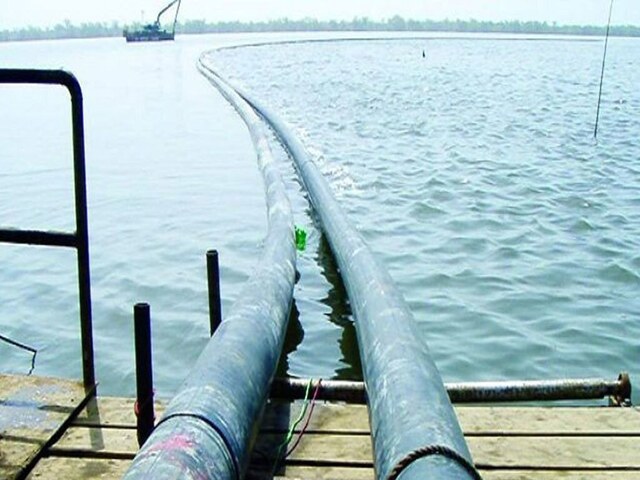By Abida Naurin
Copyright brecorder

Pakistan today faces a dual water emergency—crippling scarcity on one hand and recurring floods on the other. Ranked among the world’s most water-stressed countries, the nation’s water woes are aggravated not just by climate change, but also by years of poor governance, industrial negligence, and weak enforcement of environmental policies.
The recent floods that inundated vast areas of Sindh, Punjab, and Khyber Pakhtunkhwa are only the latest reminder of how fragile and mismanaged Pakistan’s water system has become.
Industrial water mismanagement- Industrial activity, which contributes nearly 20 percent to Pakistan’s GDP, is a key driver of water stress.
Over the last decade, industrial water consumption has surged by nearly 20 percent, with textiles, tanneries, chemicals, and cement industries at the forefront. More than 90 percent of industries, particularly those in Punjab and Sindh, depend on unregulated groundwater extraction. This has not only led to aquifer depletion but also triggered saline intrusion, reducing the availability of freshwater for both domestic and agricultural needs.
The bigger tragedy is the near absence of wastewater treatment. Less than 5 percent of industrial units are equipped with functional effluent treatment plants (ETPs). In Karachi, home to over 6,000 industries, untreated waste—including heavy metals, dyes, and toxic chemicals—is dumped directly into rivers and the Arabian Sea. Lahore, too, contributes hundreds of millions of tons of liquid and solid waste into the Ravi River each year. Such practices not only contaminate surface water but also seep into groundwater, which millions rely on for drinking.
The consequences are staggering. Industrial effluents have polluted rivers like the Ravi, Lyari and Malir, decimating aquatic biodiversity and poisoning farmland. Communities living near industrial clusters face soaring cases of skin infections, gastrointestinal diseases, and long-term exposure to carcinogenic pollutants. Agricultural produce irrigated with contaminated water has further introduced toxins into food chains, endangering human health on a mass scale.
Environmental degradation has compounded the problem. Fertile lands are losing productivity due to toxic irrigation, while aquatic ecosystems that once supported livelihoods are collapsing. Instead of serving as engines of progress, industries are fast becoming catalysts of ecological decline.
Pakistan is not without policies. The Pakistan Environmental Protection Act (1997) and the National Water Policy (2018) both highlight the need for sustainable industrial water management. However, implementation remains dismal. Provincial Environmental Protection Agencies (EPAs) lack resources, staffing, and political backing. Even when legal action is taken, penalties are too lenient to deter offenders. There exists impunity with which industries pollute, enabled by governance gaps and weak accountability.
Pakistan’s performance lags far behind regional peers.
India treats around 30 percent of its industrial wastewater, while Vietnam treats nearly 40 percent. Both countries have introduced sector-specific efficiency benchmarks, water pricing mechanisms, and incentives for recycling. Pakistan, by contrast, treats less than 5 percent of its wastewater and lacks any sectoral efficiency norms.
This failure to benchmark and adopt best practices leaves Pakistan with an industrial base that is water-inefficient, environmentally damaging, and globally uncompetitive.
The 2022 floods displaced millions and caused damage exceeding $30 billion. The floods of 2025 are once again testing Pakistan’s resilience. But beyond displacement and destruction, these floods have also carried untreated industrial waste across rural and urban landscapes. Polluted floodwaters have contaminated drinking supplies and farmland, spreading waterborne diseases such as cholera, typhoid, and dysentery.
Ironically, while floods bring an excess of water, Pakistan lacks the infrastructure to store and manage it. Much of the water rushes into the sea, wasted, even as other regions continue to experience drought. Industrial waste exacerbates the disaster by clogging storm drains, reducing the capacity of urban centers to cope with heavy rainfall. Instead of mitigating the effects of climate shocks, Pakistan’s industrial practices worsen them.
Addressing Pakistan’s water crisis demands urgent reforms centered on industrial water management. Effective industrial water management in Pakistan requires a comprehensive package of reforms.
Mandatory water audits should be introduced, compelling industries to disclose their water consumption and effluent discharges, with strict penalties imposed for false reporting. At the same time, investment in wastewater treatment infrastructure, particularly common effluent treatment plants (CETPs) for industrial clusters, must be prioritized through shared financing models between the government and private sector.
Strengthening the capacity of provincial Environmental Protection Agencies (EPAs) is equally critical, equipping them with adequate resources, monitoring technologies, and legal authority to enforce compliance. Introducing water pricing mechanisms to regulate and charge groundwater extraction would discourage unsustainable overuse. Furthermore, effective public–private partnerships involving industry associations, donor agencies, and civil society can play a key role in accelerating the adoption of water-efficient technologies.
Finally, industrial planning must be made flood-resilient by ensuring that waste management and drainage infrastructure in industrial zones is climate-proofed, thereby reducing the risks of pollution during extreme weather events.
Pakistan’s water future cannot be secured by focusing only on agriculture or climate adaptation. Industrial mismanagement lies at the heart of the crisis, silently undermining water security, public health, and ecological sustainability. The floods of recent years serve as a grim reminder: when unchecked pollution collides with climate shocks, the damage multiplies.
Water is not just an economic input—it is the foundation of life. Pakistan must act decisively, ensuring industries become part of the solution rather than the problem. If reforms are further delayed, the country risks drowning in its own negligence—sometimes in floods, sometimes in scarcity, but always in crisis.
Copyright Business Recorder, 2025



